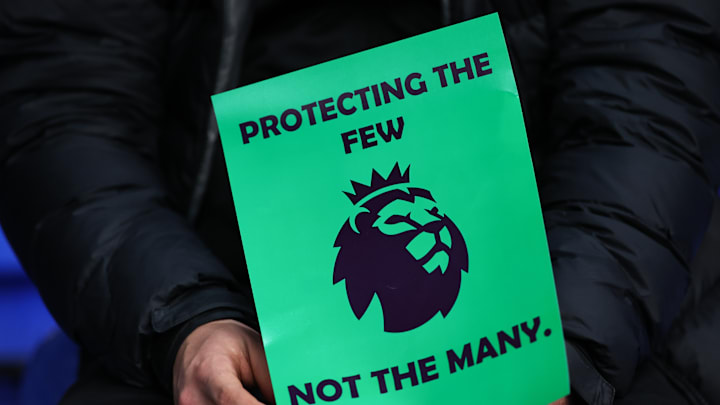On 15thJanuary, it was announced that the Premier League had charged Everton (for the second time in a few months) and Nottingham Forest for breaching the Premier League’s financial regulations. In short, they are both accused of sustaining losses above the £105 million allowed in the latest three-year cycle.
Some football fans, particularly of the two clubs concerned, and pundits have been outspoken in their allegations of unfairness. Why, they ask, are the Premier League targeting smaller clubs whilst allowing big spenders, like Manchester City and Chelsea, to get away with it? Likewise, why are Everton being charged twice in the same season?
There are three points to bear in mind
First, there are on-going charges against Manchester City. However, they are very different and more complex than those faced by Everton and Forest. They are not just about overspending but relate, in particular, to allegations that City have attempted to deceive the Premier League by artificially inflating their football revenue to disguise overspending. That charge has been strenuously denied by the Etihad outfit. The charges, too, date back many years. By contrast, both Everton and Forest have accepted they have breached the rules in the last three year cycle with both seeking to appeal on the grounds of mitigating circumstances.
Second, there is a great deal of misunderstanding over the regulations. They are not about overspending per se but in relation to a club’s football-related revenue (principally transfer fees, match-day income and cashed gained from broadcasting games and commercial activities). In short, the amount clubs are permitted to spend will vary depending on how much income they raise from football activities. And, of course, some clubs raise much more revenue than others.
Now, it may be that Chelsea, for instance, will, at some point, breach the regulations because of the huge amount they have splashed out on transfer fees and wages recently. However, they clearly haven’t broken the rules in this cycle and may not do so in the future. This is due to a combination of factors. Their football revenue, for one thing, is much higher than most of the clubs in the Premier League (including Everton and Forest) so, as a result, they can spend more before the regulations bite. In addition, they have also raised a significant amount of income from selling players. Finally, they have, very cleverly, staggered transfer fees over multiple years so that payments fall into different regulatory cycles.
Third, Everton fans may be partly right to be angry that their club has been charged twice in the same season and twice for two out of the three years under review. However, there is always an overlap between some seasons in the Premier League regulations. That is how they work. Everton and other clubs signed up for this when it was introduced. It should be said, too, that the current charge relates to one new season (2022-3). A critic would say that the Goodison Park outfit haven’t learnt from their previous misdemeanours and therefore deserve to be punished. Finally, the charge has come so soon after the previous one because the Premier League, rightly in my view, has changed the rules so that decisions are reached before the end, or just after, the season in which the offences took place.
So, what has this got to do with Leicester City? Well, the Foxes are subject to the financial rules as much as any other club. In previous posts, I have documented how the King Power outfit were forced to limit spending before the 2022-3 season, with the consequences we are all aware of. Feedback on my original posts made the point, rightly, that Leicester were themselves charged and found guilty of breaching the regulations when they were last in the Championship, incurring, after sustained negotiations, a substantial fine of over £3 million.
In those previous posts, I also commented that the case for compensation for Leicester is strong given that Everton’s breach of the financial regulations can be regarded as part of the explanation for their Premier League survival at the expense of the Foxes. With these latest charges, the case for compensation is even stronger. Not only do they reveal that overspending applied specifically to the season in which the events happened, but we can now add Forest - who finished 16th and only four points ahead of Leicester last season – into the mix. As reported in the Leicester Mercury, Jamie Carragher - a boyhood Everton fan - has written that although the Merseysiders' punishment is harsh 'Leeds United, Southampton and Leicester City supporters are within their rights to argue – as things stand – they have been punished far more having been relegated last May'.
The final point to note is that Leicester are now subject to the even more stringent financial regulations in the Championship. As Rob Tanner in the Athletic has indicated, it is pretty clear that the lack of movement by the Foxes in this current transfer window is a product of the club’s concern to keep within the spending limits. Only when existing players are sold will new signings become possible. As we have just seen in the case for Forest – who were a Championship club for two years of the current three year cycle - what happens financially this season could come back to haunt the East Midlands club in the future if, as looks likely, they are promoted back to the Premier League at the end of this season.
